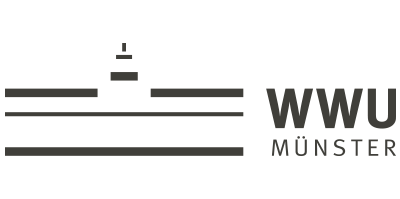University of Münster

WWU Münster’s research profile is marked by a considerable number of research focal points of proven excellence – in the humanities (including the theological faculties) law, business administration, natural sciences, mathematics and medicine.
WWU uses its capabilities to the full, profiting from its multifaceted research profile by developing new internal, interdisciplinary collaborations to meet arising new challenges.
Natural sciences and mathematics
In view of the funding made available by the Deutsche Forschungsgemeinschaft (German Research Foundation), WWU Münster is one of the 10 top performing universities in Germany in the fields of natural sciences and mathematics. At the level of individual disciplines, mathematics, chemistry and geosciences in particular – all of them among the top 5 – have a very strong profile in the field of research. There is a variety of interdisciplinary links among the natural sciences and between them and medicine.
Humanities
In the humanities numerous representatives from historical and cultural disciplines have come together to deal with themes relating to politics, cultures and religions of the pre-modern age. The history faculty at WWU is one of the leading institutes of its kind in Germany. There is also a proven tradition of cooperation in the field of research between disciplines which embrace not only history, but also medieval philologies, ancient history, law, Islamic studies and the two theological faculties.
Law, business administration and information technology
Law, business administration and information technology represent another field in which WWU Münster has a leading position. Rankings published by the Centre for University Development (Centrum für Hochschulentwicklung) for these disciplines demonstrate that WWU is strong in research and has a high academic reputation.
Interdisciplinary cooperation
A small, but nonetheless typical, example of WWU’s interdisciplinary strength is provided by the Department of Applied Ethics, in particular Bioethics. Representatives of such widely varying disciplines as Catholic theology, philosophy, history, medical ethics and cellular biology are members of the main German ethics commissions. They coordinate their activities through the Centre for Bioethics. The Centre for the History and Culture of the Eastern Mediterranean or the Centre for Nonlinear Science live on the variety of the research carried out at WWU.
Public-private partnership
Cooperating in research with external partners plays an important role in WWU’s profile. The Max Planck Institute for Molecular Biomedicine and the Leibniz Institute for Arteriosclerosis Research have close links to the Faculty of Medicine – also in the field of research. Cooperation between the German Aerospace Centre in Berlin and WWU’s Institute of Planetology is similarly close. Research done in cooperation with leading companies in relevant disciplines – as well as with numerous small and medium-sized companies – attest to the attractiveness of the university as a location for basic research for practical applications.